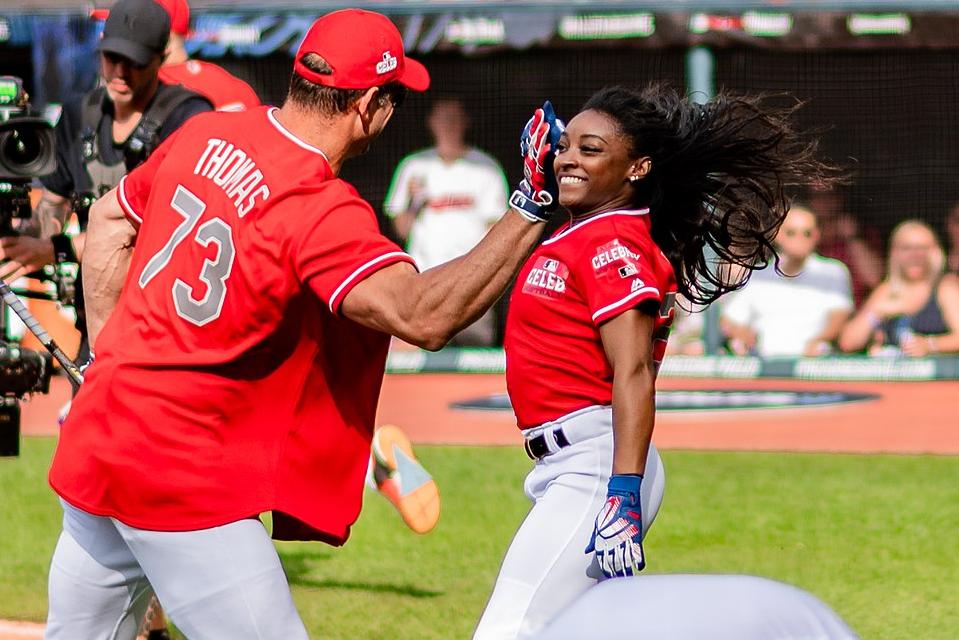
During these Olympic games in Tokyo, there’s been ongoing controversy over whether or not women athletes should be wearing them. Some say it’s a matter of safety. Others say it’s a matter of decency. Others say it should be a personal choice.
No, I’m not talking about face masks. The “them” I’m talking about are shorts and pants as part of women athletes’ uniforms.
It’s 2021. Women have been competing in the Olympic games for more than 120 years now, yet they still face the same infuriating reality they did in 1900: Their athletic attire is either considered “too sexy” or “not feminine enough,” whether by sporting officials or the media.
But in a year when health is (or should be) a top concern, more women athletes are now fighting against the double standards and unrealistic expectations, and taking back control of their bodies.
A history of sexist policies
When women were first allowed to compete in the Olympics, officials voiced their concern “that the women would be a distraction to the men, who would see their bodies in action.” As a result, female competitors wore bulky dresses covering ankle to neck. These dress codes continued in place until after World War II, despite men’s uniforms changing with the times to improve athletic performance.
Editor's note: Be sure to subscribe to our Brands Taking Stands newsletter, which comes out every Wednesday.
Erin Redihan is a history lecturer at Worcester State University, and the author of The Olympics and the Cold War, 1948-1968. She recently spoke with TriplePundit about why sexism is still prevalent in today’s Olympics.
“Women have always been treated differently by the IOC [International Olympics Committee] and have been subject to much stricter standards than men in terms of what is considered acceptable,” Redihan said, noting it took almost 90 years for the Committee to welcome its first female member.
And while 49 percent of Olympians in this year’s games are female (the highest percentage to date), women still only comprise 33 percent of the IOC. “This means that men (and if we're really specific, affluent white men) are the ones making many of the decisions that impact female Olympians,” Redihan said.
2021 headlines show much work lies ahead
This year, female athletes’ uniforms started making headlines weeks – or even months - before the opening ceremony.
While not an Olympic sport, women’s beach handball was in the news in July after the Norwegian national team was fined 175 euros (about $207) per player for wearing shorts instead of bikini bottoms during a competition in Bulgaria.
In mid-July, U.K. Paralympian Olivia Breen shared that an official called her running shorts “too short and inappropriate” during a long-jump competition in England.
And this past April, Germany’s women’s gymnastics team drew international attention for wearing unitards (which cover arms and legs), instead of the traditional leotards (which cut high on the thighs) during a competition. The team made an official statement that the uniform choice was a deliberate statement against “sexualization” in gymnastics. They opted to wear the unitards during their recent Olympic qualifying rounds in Tokyo, as well.
“It shouldn’t be newsworthy that some members of the German women gymnastics team chose to wear full-body unitards,” Redihan said. “After all, male gymnasts wear pants for four out of six events. The fact that this made headlines around the world proves that we have a long way to go in terms of sexism and uniforms.”
Women athletes are “Redefining what winning is”
Members of the U.S. women’s gymnastics team past and present – including Simone Biles (shown above competing at the 2019 All-Star Legends and Celebrity Softball Game), Sunisa Lee and Aly Reisman - have voiced their support of the German teams’ uniform decision, adding that the most important thing is that women are able to wear what they feel most comfortable and powerful competing in.
It is that sense of power that is especially important for gymnasts – and really all the athletes – in these Olympic games, the first since former U.S. Gymnastics team doctor Larry Nassar was found guilty of widespread sexual abuse.
“A real challenge within the sport context is the power differential between athletes and coaches or trainers – anyone who has authority over athletes such that athletes often feel that they just have to do what they’re told,” said Elizabeth Daniels, a psychology professor at the University of Colorado, in an interview with NPR. “So now where we’re seeing athletes speaking out about uniforms, you know, it really could be symbolic of the need for athletes to have more voice in general in the sport context.”
And while not directly related to uniforms, Simone Biles’ very public decision to stand up for her own mental and physical wellbeing is one more step in female athletes – particularly gymnasts – asserting control over their own bodies and images.
“We start so young, and we have no autonomy over our bodies. It’s not just about the physical and sexual abuse that many suffered. You’re told to put your body on the line every single second,” said Katelyn Ohashi, a former UCLA gymnast, in a recent op-ed for Time. “The system is set up to make you feel as if your body isn’t your own, your selfhood isn’t your own. And what we’re seeing now is a manifestation of athletes taking back their autonomy and redefining what winning is.”
Image credit: Erik Drost, Wiki Commons and Flickr

Megan is a writer and editor interested in sharing stories of positive change and resilience. She is the author of Show Up and Bring Coffee, a book highlighting how to support friends who are parents of disabled children. You can follow her at JoyfulBraveAwesome.com.














